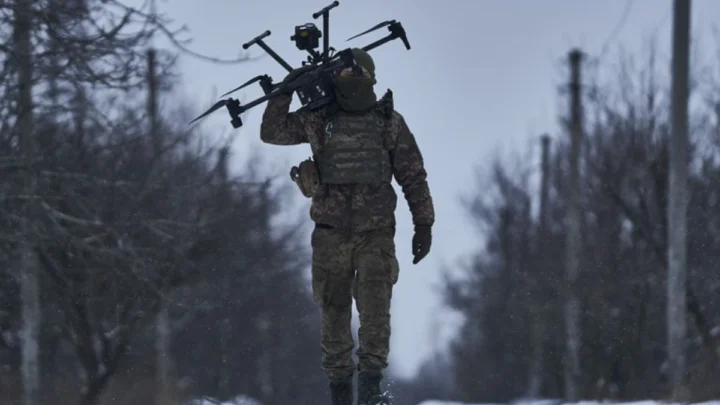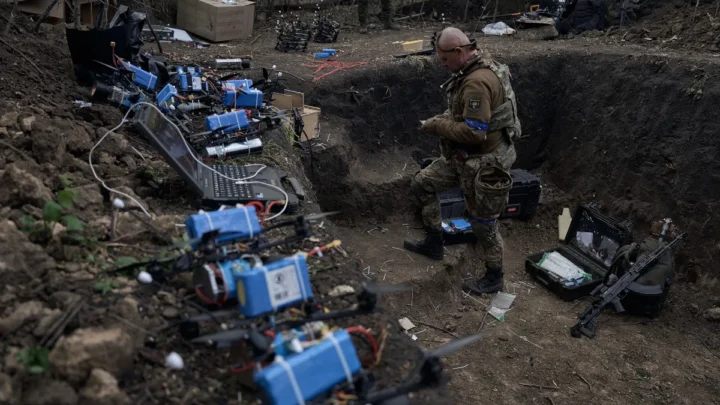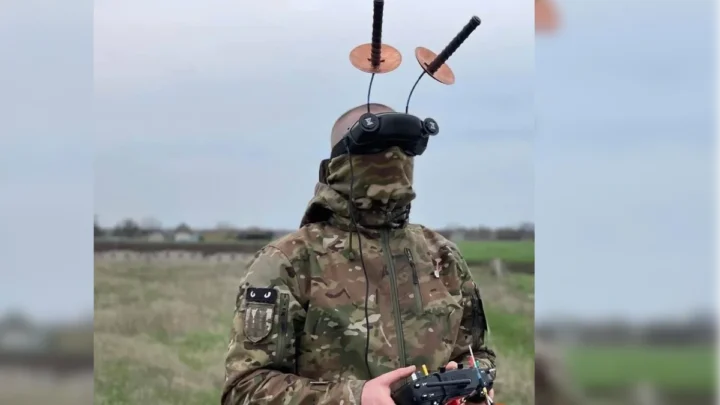They grew up playing Call of Duty or Fortnite, but now they have left the digital world to apply the skills they learned online in the real world. Faced with a lack of men, they are recruited in Ukraine to pilot drones that respond to the war waged by Russia. And they are absolutely deadly.
Nerds Gamers... a lethal "weapon"
In recent years, modern warfare has increasingly been shaped by technology. Proof of this is the ongoing war between Ukraine and Russia, where a new generation of fighters appears on the battlefield: young people, technology enthusiasts, gamers and programmers.
These Ukrainian “nerds”, initially passionate about the world of video games and technology, turned their virtual skills into a powerful weapon and became some of the most effective and feared drone pilots in the defense of Ukraine.
When we think of combat drone pilots, the image that comes to mind usually involves trained soldiers with years of military experience. However, in Ukraine, this reality was quickly changed by the context of war and the urgent need for manpower and technological innovation.
Many of these new racers are young people who grew up playing games like Call of Duty, Battlefield or Dotawhere they developed an advanced understanding of strategy, quick reflexes and the ability to maneuver virtual objects in three-dimensional environments.
Thus, they brought their capabilities to the real world, using drones as effective weapons against Russian forces. Common Impressive control and sharp intuitionthese Ukrainian "gamers" quickly adapted to monitoring the enemy, carrying out precise attacks and providing real-time information to their units.
For many, this transition from screens to the battlefield was a way to contribute to the defense of their country using the skills they have mastered for years in the digital world.

Technology and innovation as allies
Ukraine quickly realized the potential of drones in modern warfare, especially with the help of young people who understand technology and innovation. In collaboration with the government, and with support from international financiers, specific programs were created to train new pilots and increase production of these devices.
This initiative has allowed the country to equip a growing number of fighters with drones, some of which have been modified to carry out specific tasks such as long-range surveillance, terrain reconnaissance or even targeted attacks with explosives.
For many of these young people, adapting to this world was a natural progression. With a shorter learning curve than a traditional soldier, these drone operators can quickly become efficient in piloting and strategy, using the knowledge acquired in video games to apply it in real combat situations.
This type of remote warfare, where the soldier is not physically present on the battlefield, has allowed Ukraine to reduce the number of casualties among its forces while maintaining a lethal and precise presence.
Impact of Drones on Modern Warfare
Drones have changed the way warfare is conducted, allowing for a more controlled and less risky approach to combat for the operator. Those used by Ukrainian pilots vary between commercial models, easily purchased and modified for military operations, and high-tech drones provided by allied countries and international organizations.
This diversity allows for a versatility that traditional armed forces would be difficult to achieve without much greater investment. In the case of Ukraine, it has provided a significant advantage. These devices are capable of flying over enemy positions, identifying Russian troops and providing a detailed view of the terrain.
By transmitting this information to Ukrainian forces on the ground, drones have played a crucial role in ambushes and precision strikes, disrupting the Russian advance and protecting strategic positions.
Pilots also carry out direct attacks on the enemy, using devices equipped with small explosive charges that can be dropped on enemy vehicles or positions. The precision of these remotely controlled attacks has turned these Ukrainian “gamers” into fearsome fighters, capable of causing significant damage behind enemy lines without being directly in danger.

"Nerds" as national heroes
The story of these young Ukrainians, previously seen as “nerds” or “gamers” with no military experience, turned into a narrative of resistance and patriotism which has inspired the Ukrainian people and caught the world's attention, according to The Wall Street Journal.
Many of them left promising careers in technology, software development, and engineering to join the war effort and protect their country from invasion. By applying their technological skills on the battlefield, these drone pilots have become unlikely heroes, often praised by military superiors and recognized by the population.
His story also highlights the importance of a new approach to modern warfare, where technological knowledge can be as valuable or more valuable than physical strength. In an increasingly digital world, the ability to operate lethal devices and other technological systems can redefine the concept of “soldier” and show that war is not just for those with intense physical training, but also for those with strategic and technological skills.
The future of war and the importance of technology
The participation of these Ukrainian “nerd gamers” as drone pilots in the current war represents a significant change in the way conflicts may be handled in the future.
In a scenario where technology continues to evolve rapidly, it is likely that warfare will continue to become more digital, with less physical combat and more remote, automated operation. Digital skills that once seemed limited to the world of video games and programming now find practical application in real conflict situations.
The Ukrainian example also serves as a lesson to other nations about the importance of investing in military technology and innovation, as well as nurturing young talent in the areas of programming and operating complex systems. The war in Ukraine demonstrated that, in the 21st century, military power is not just a matter of brute force, but also of intelligence and technological adaptation.
Source: pplware.sapo.pt




